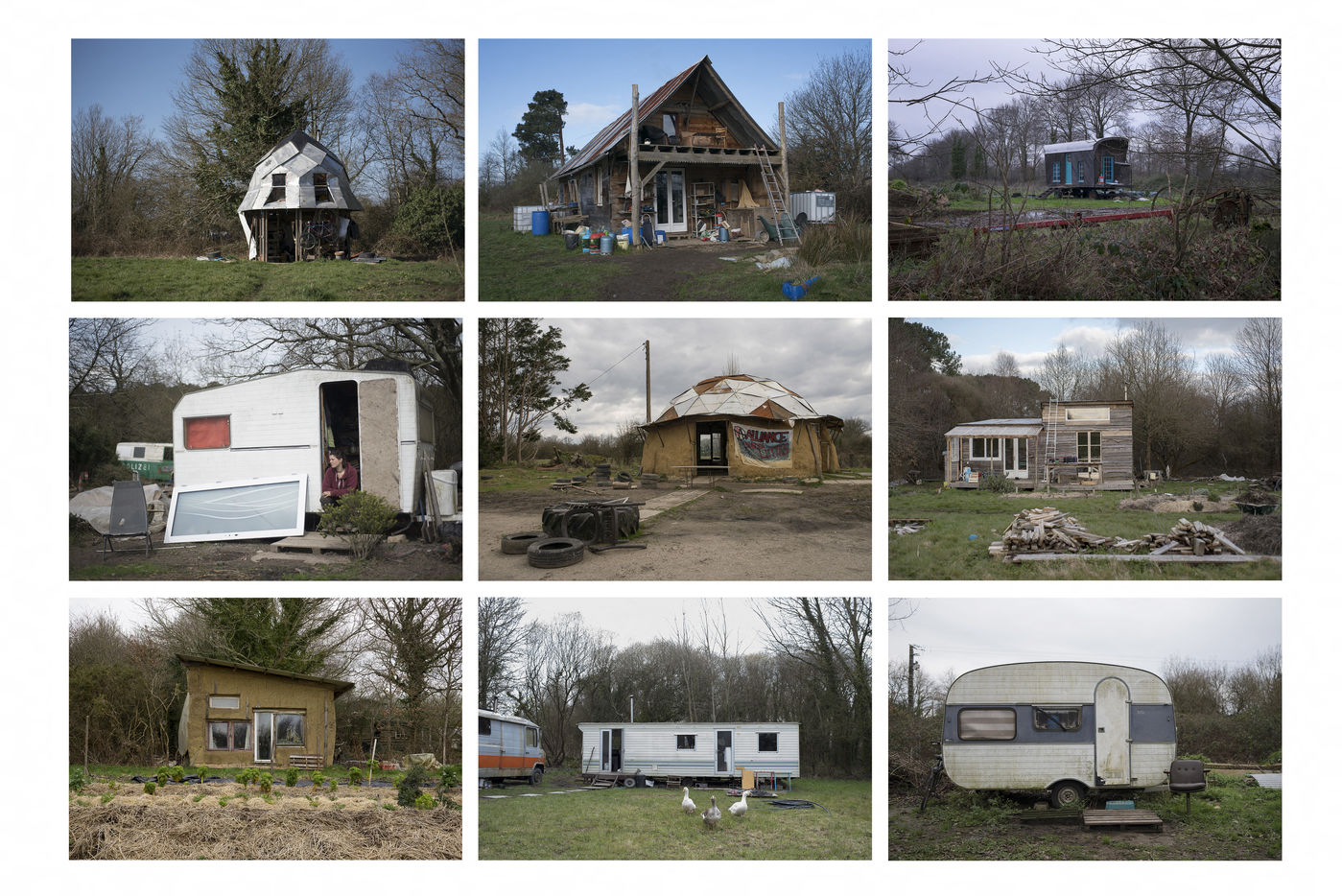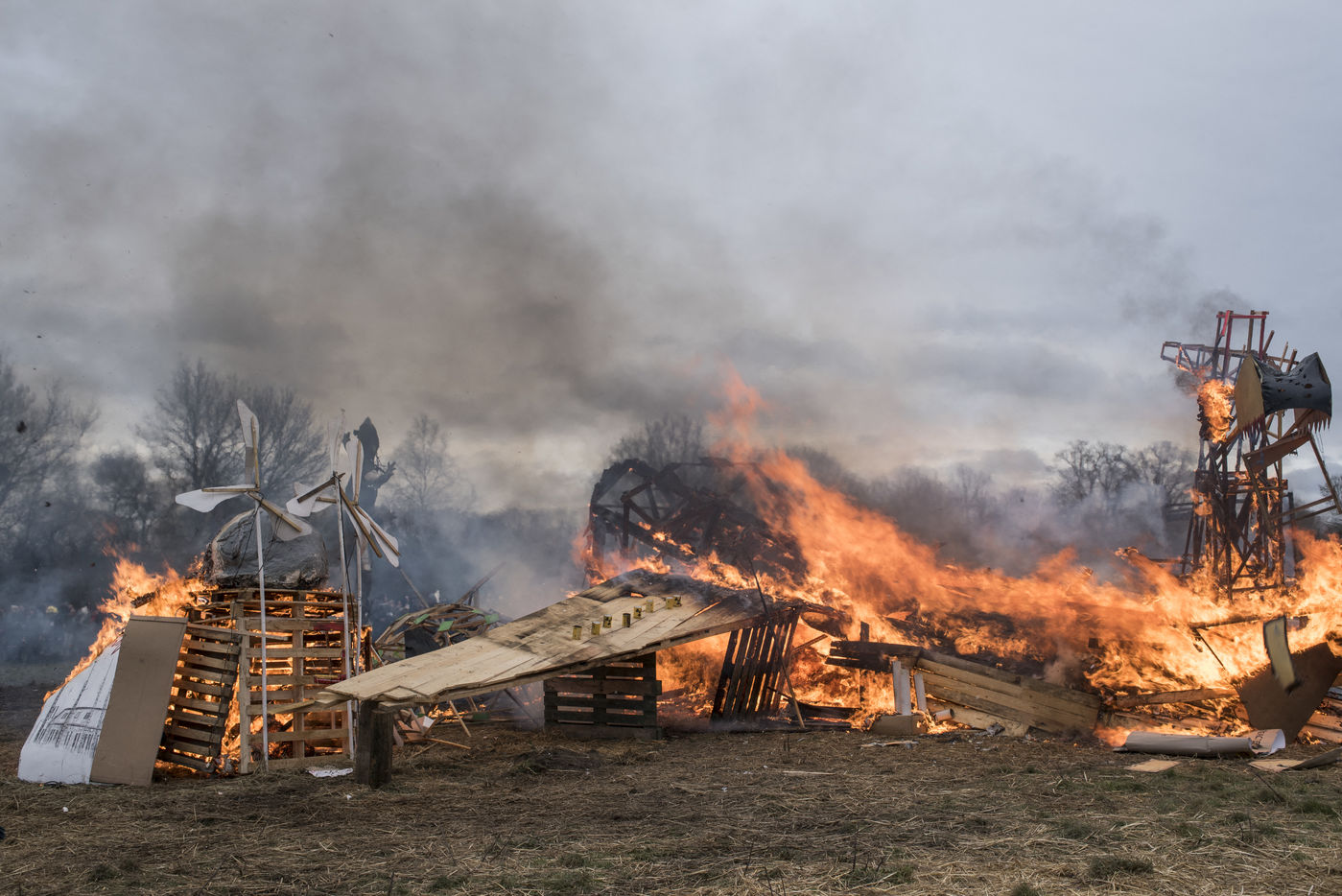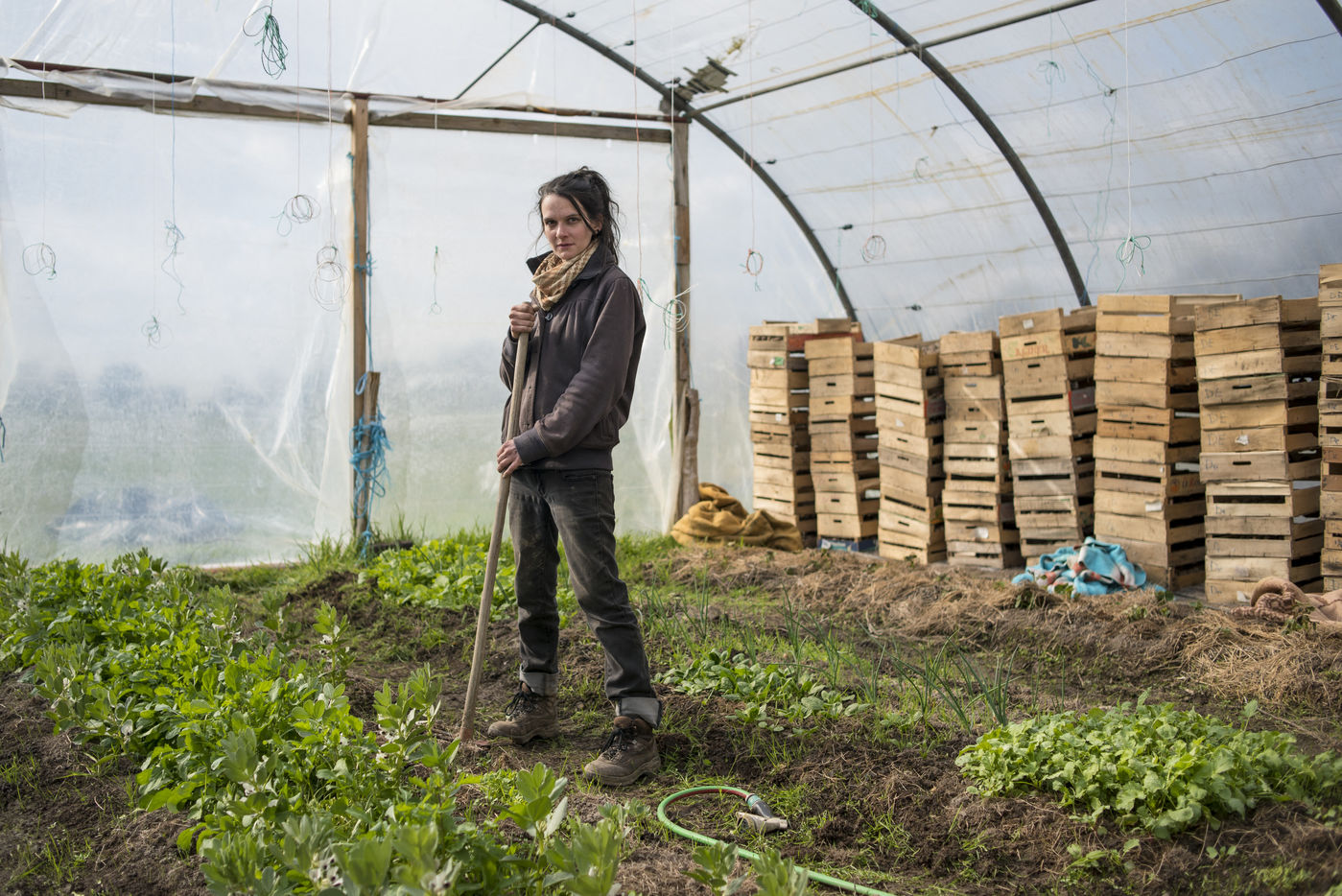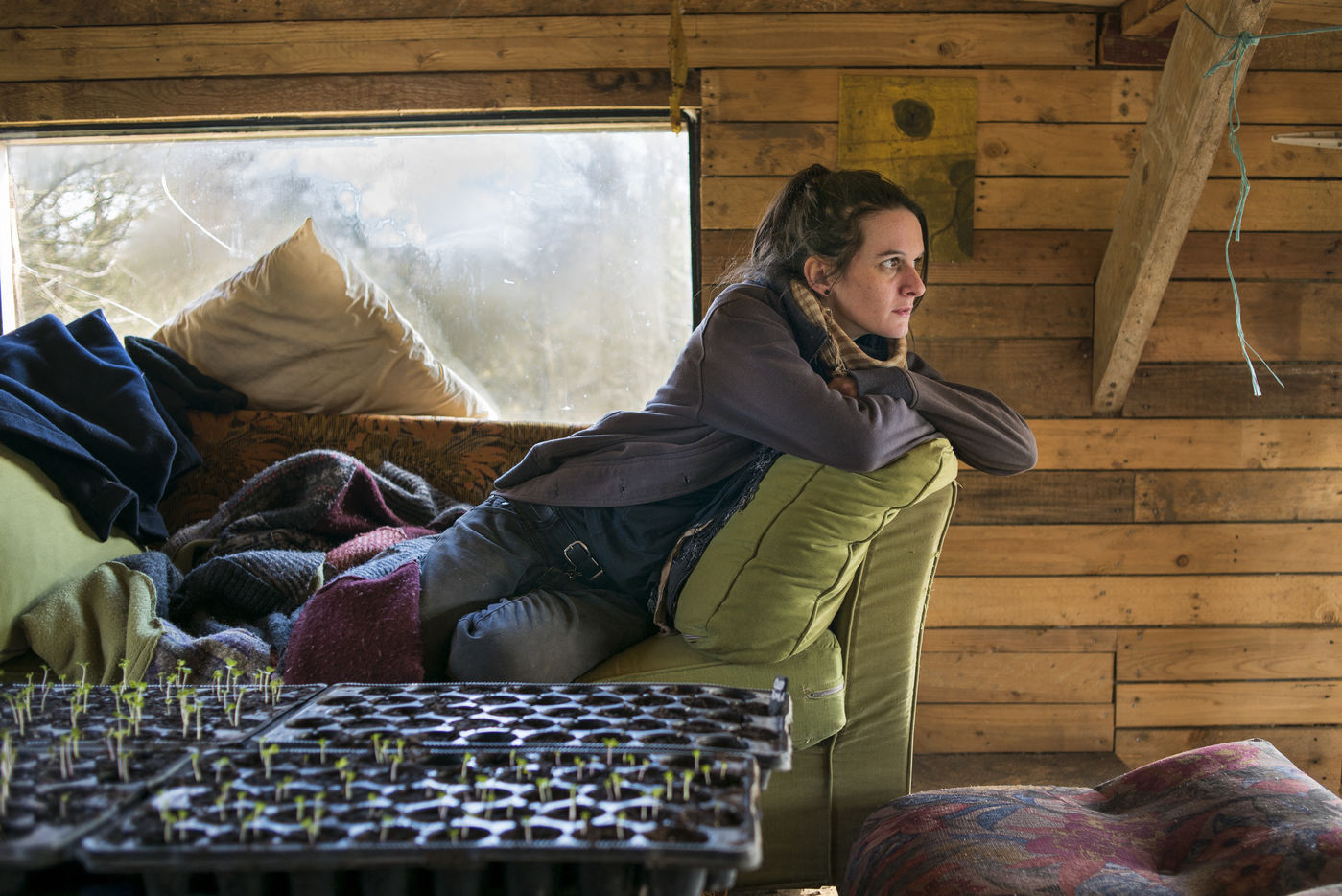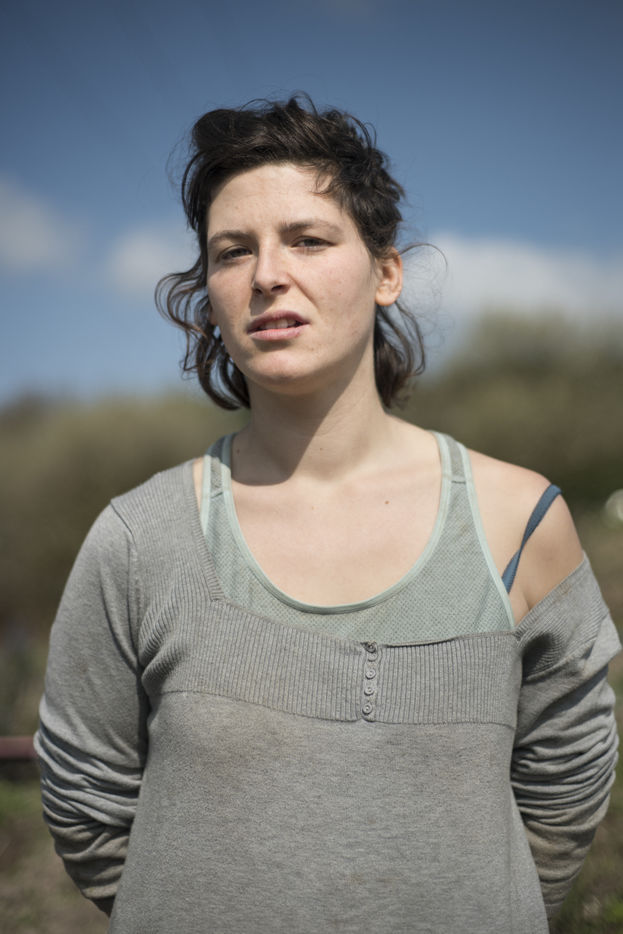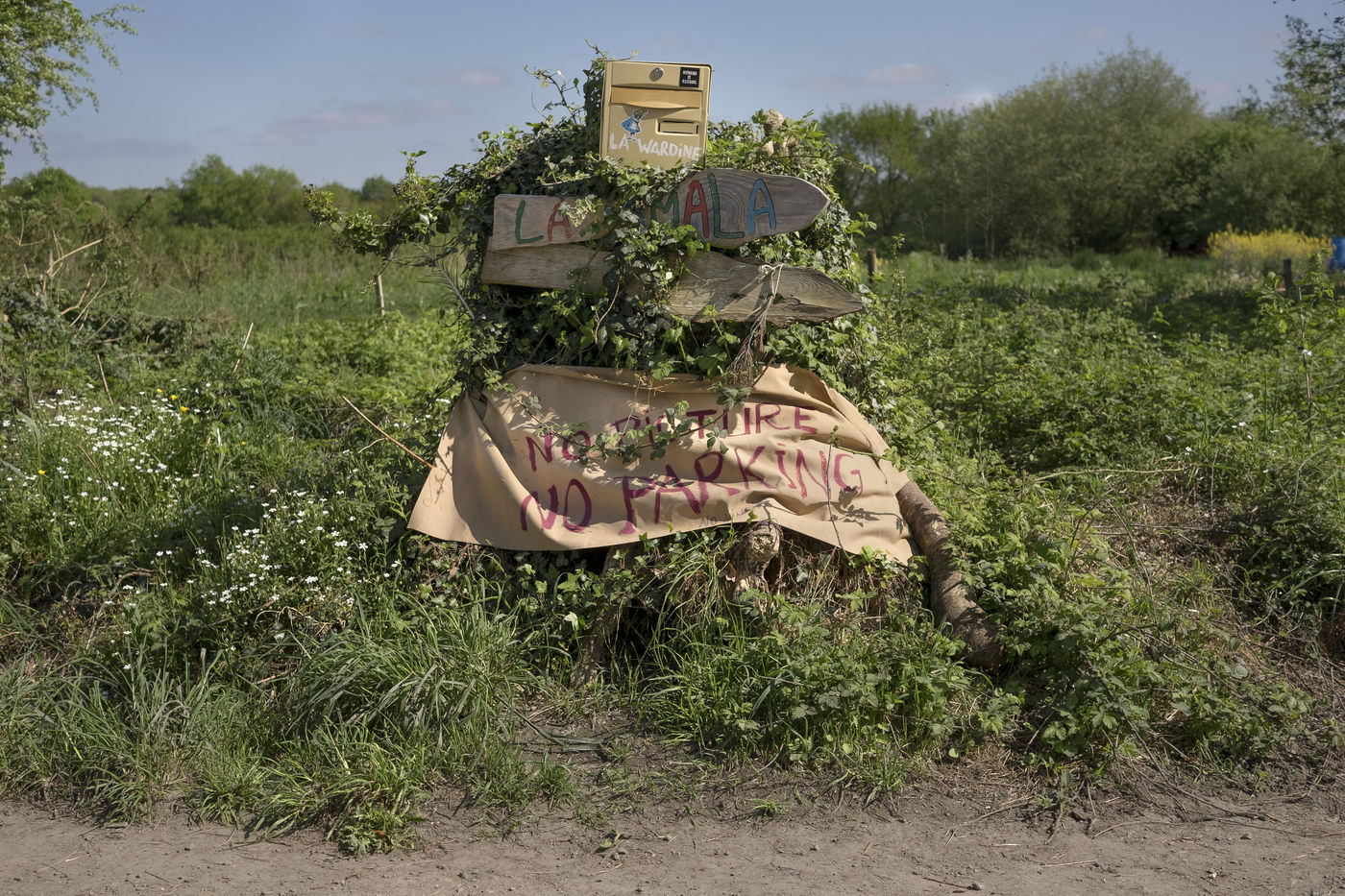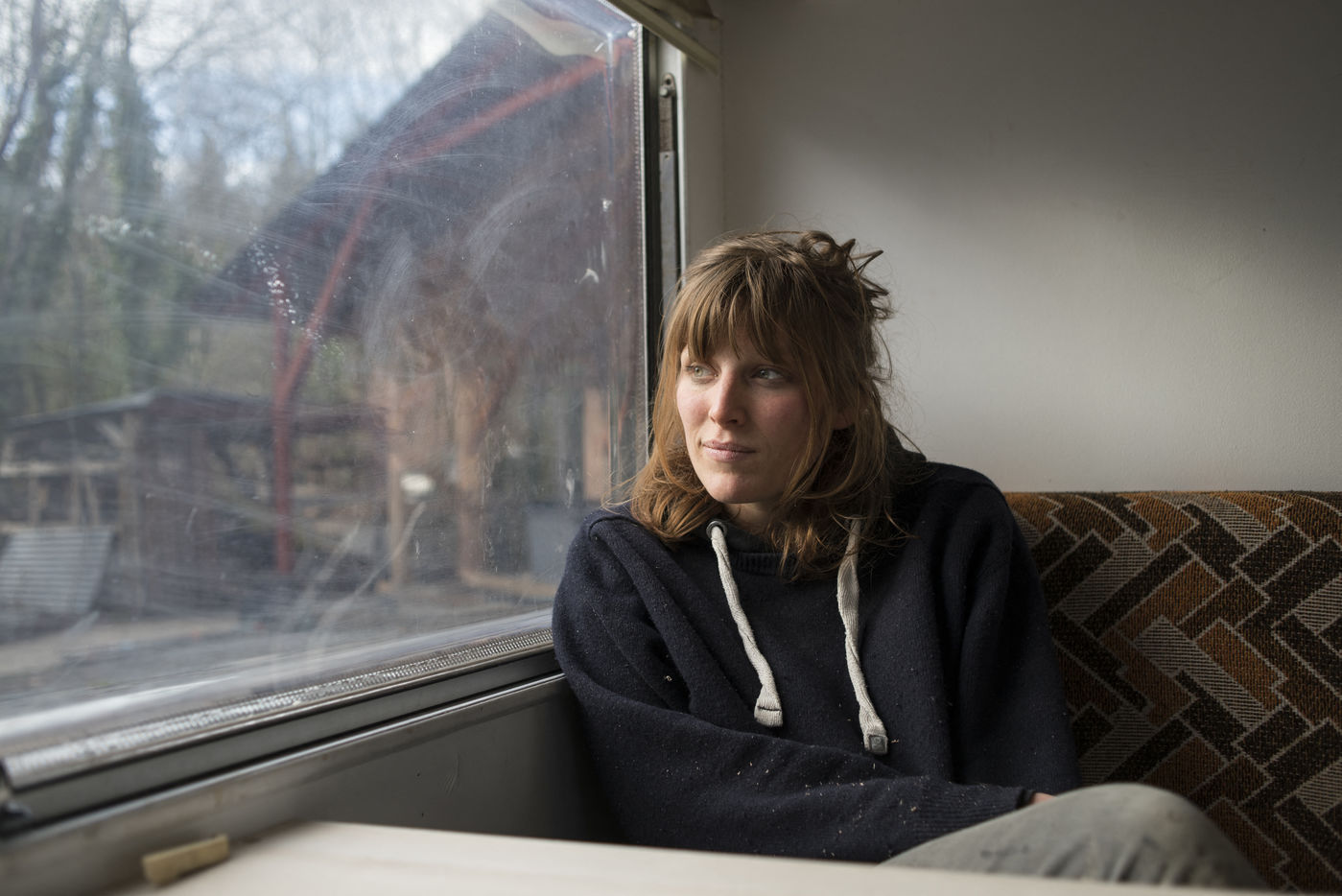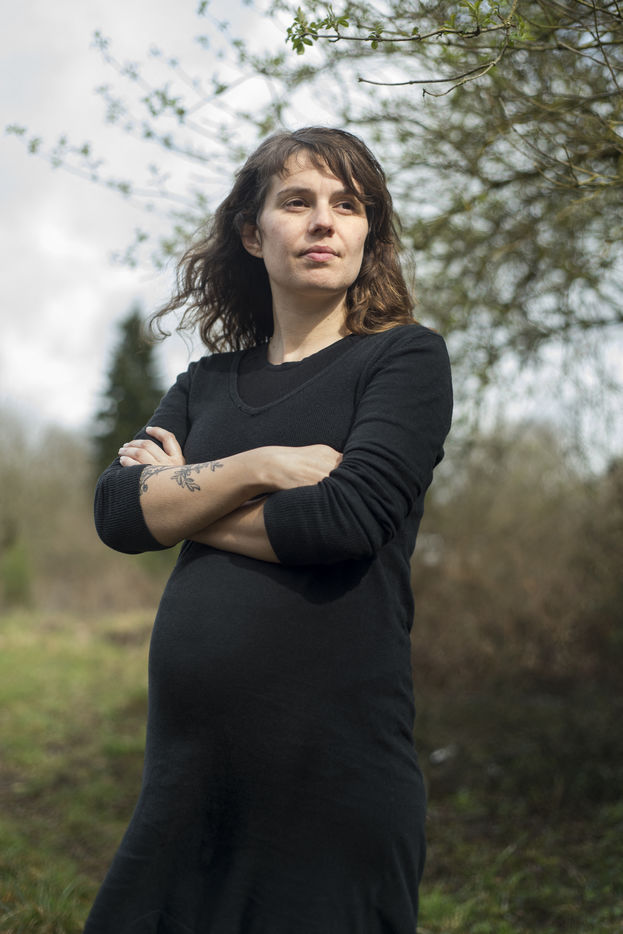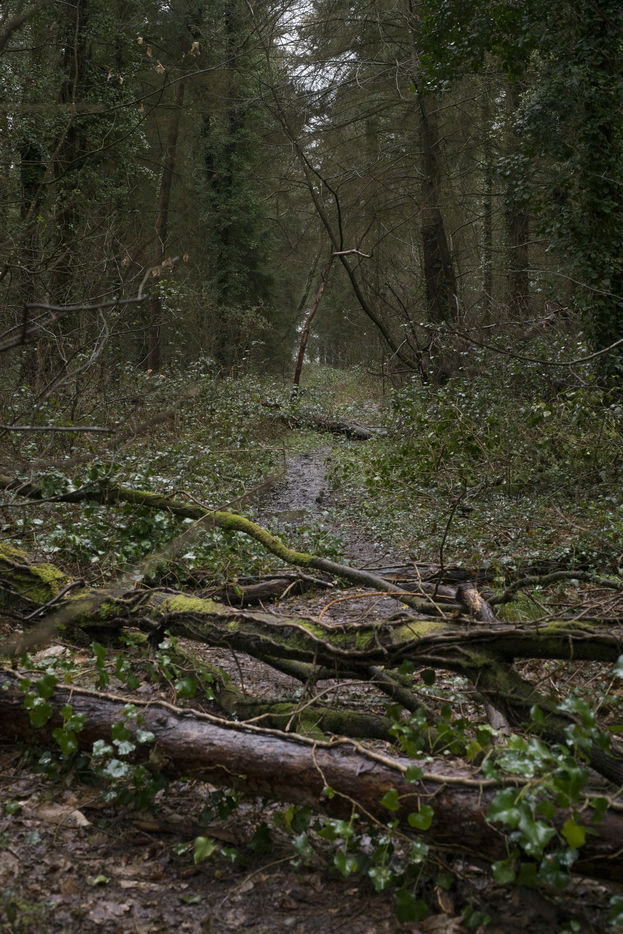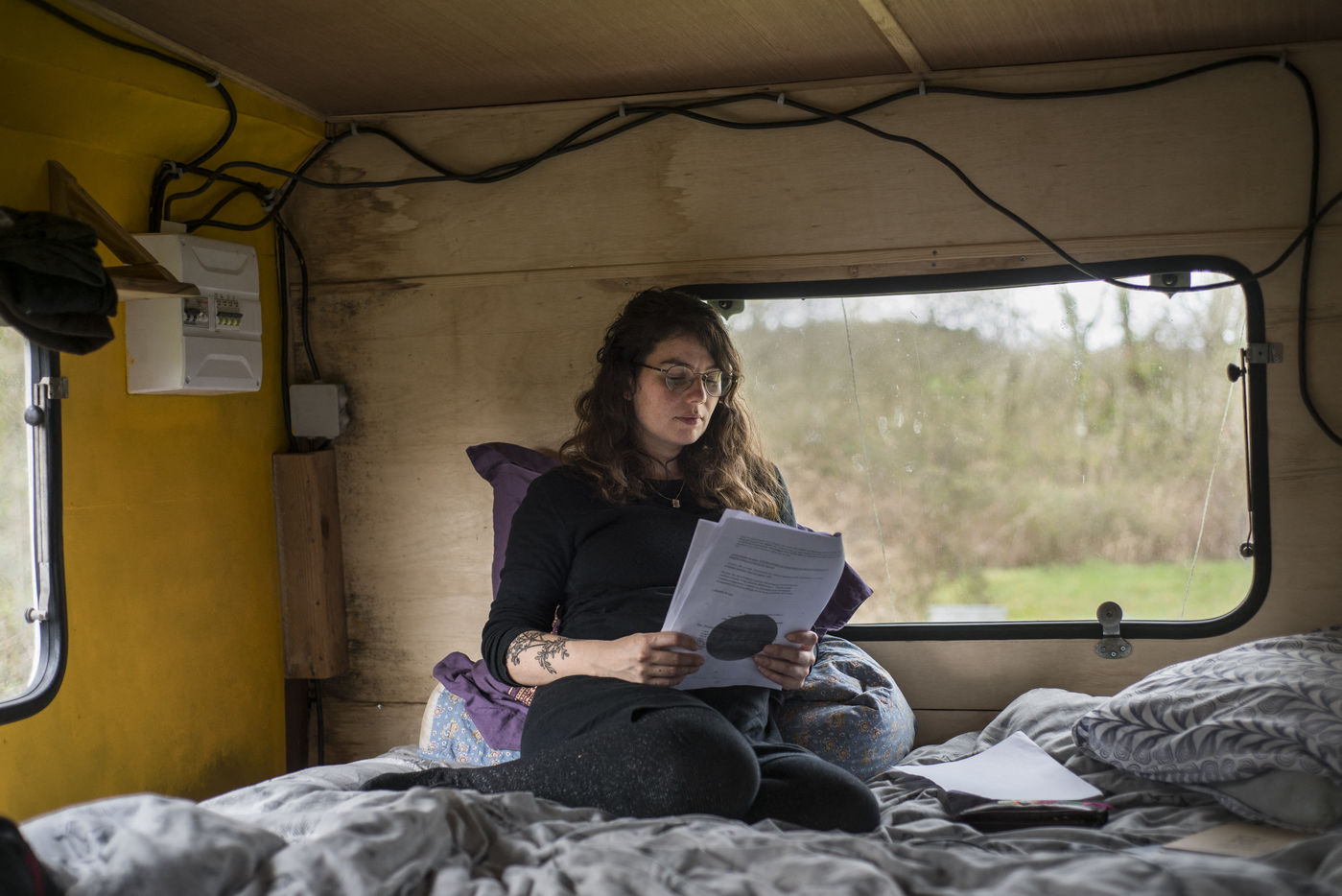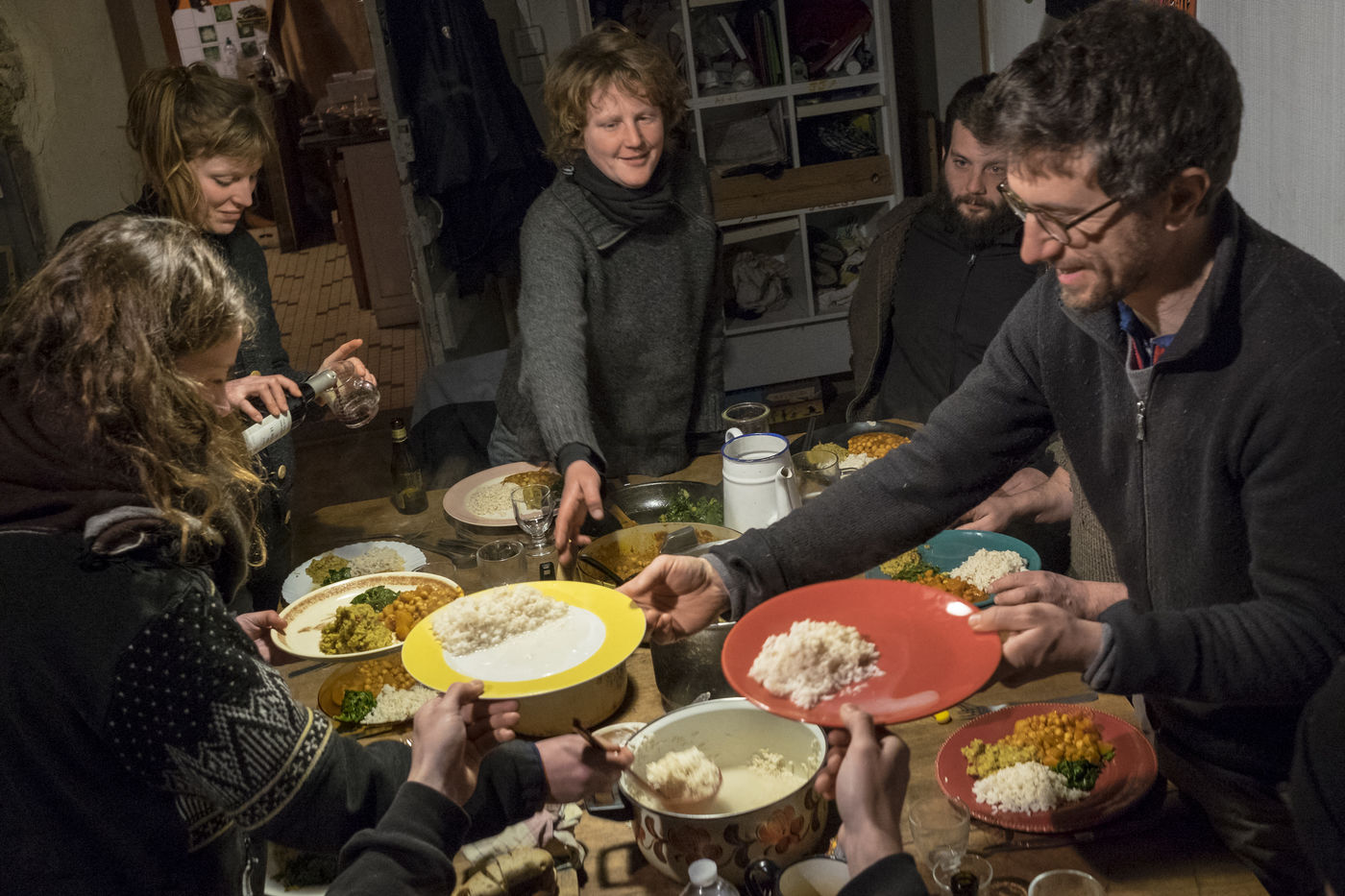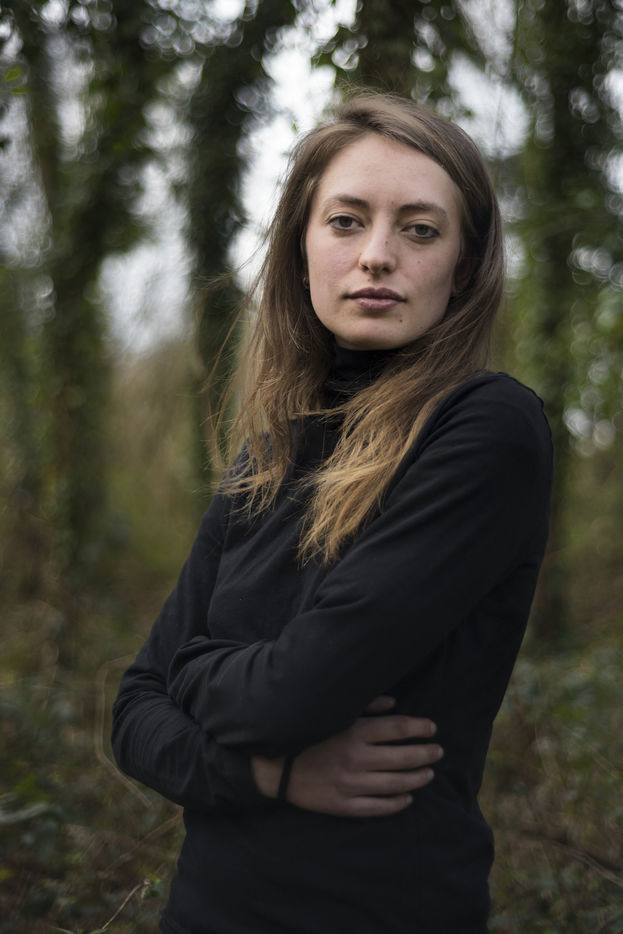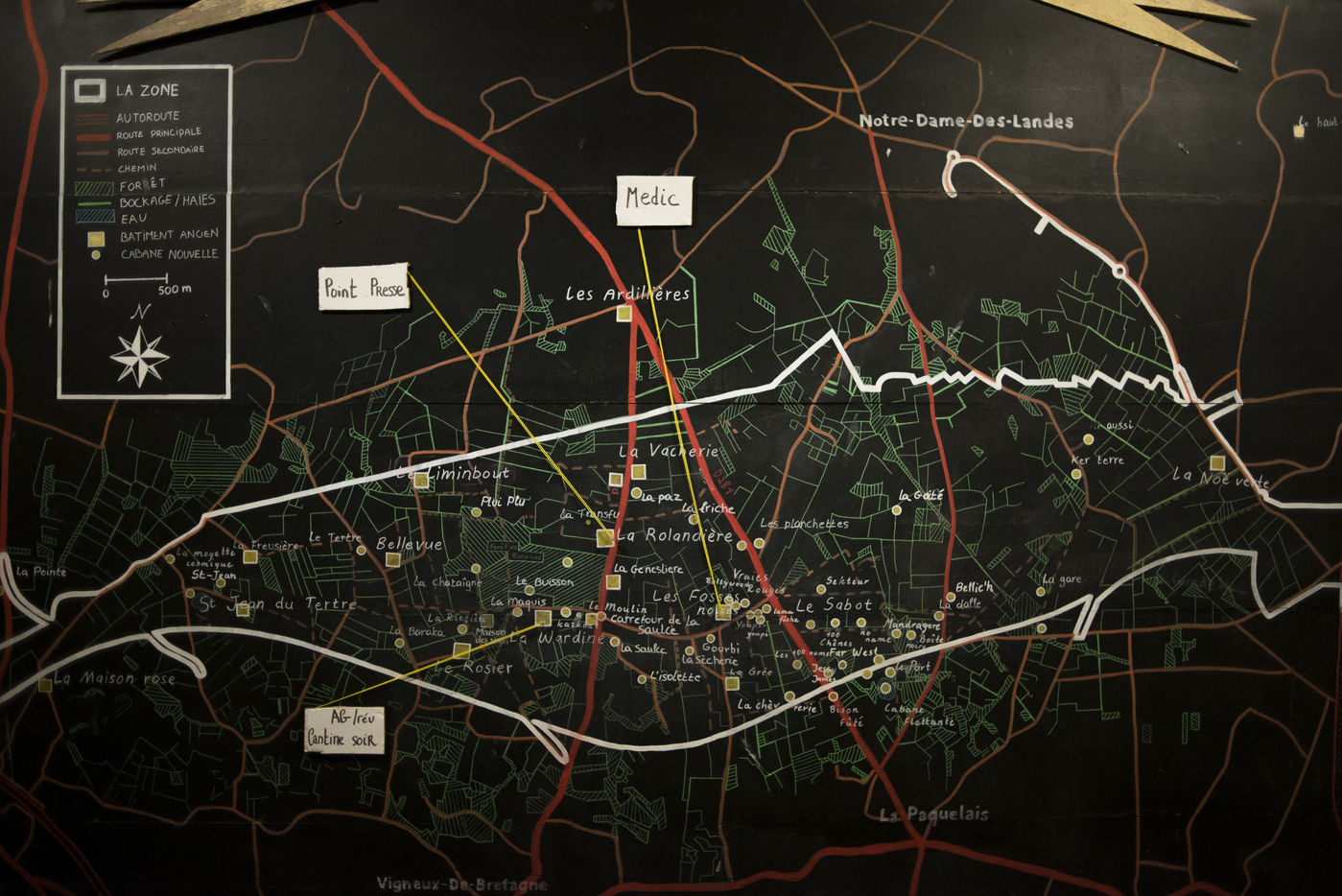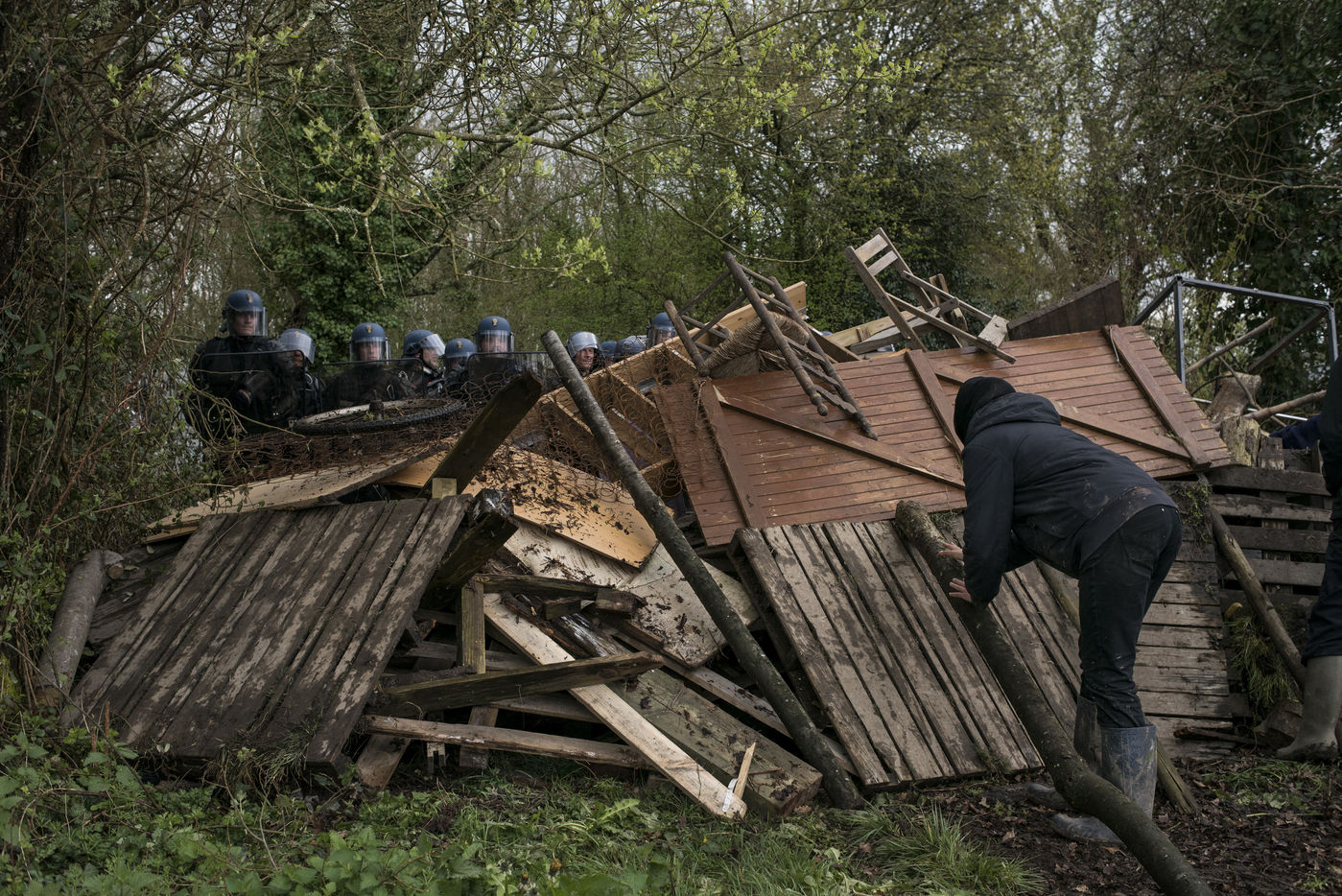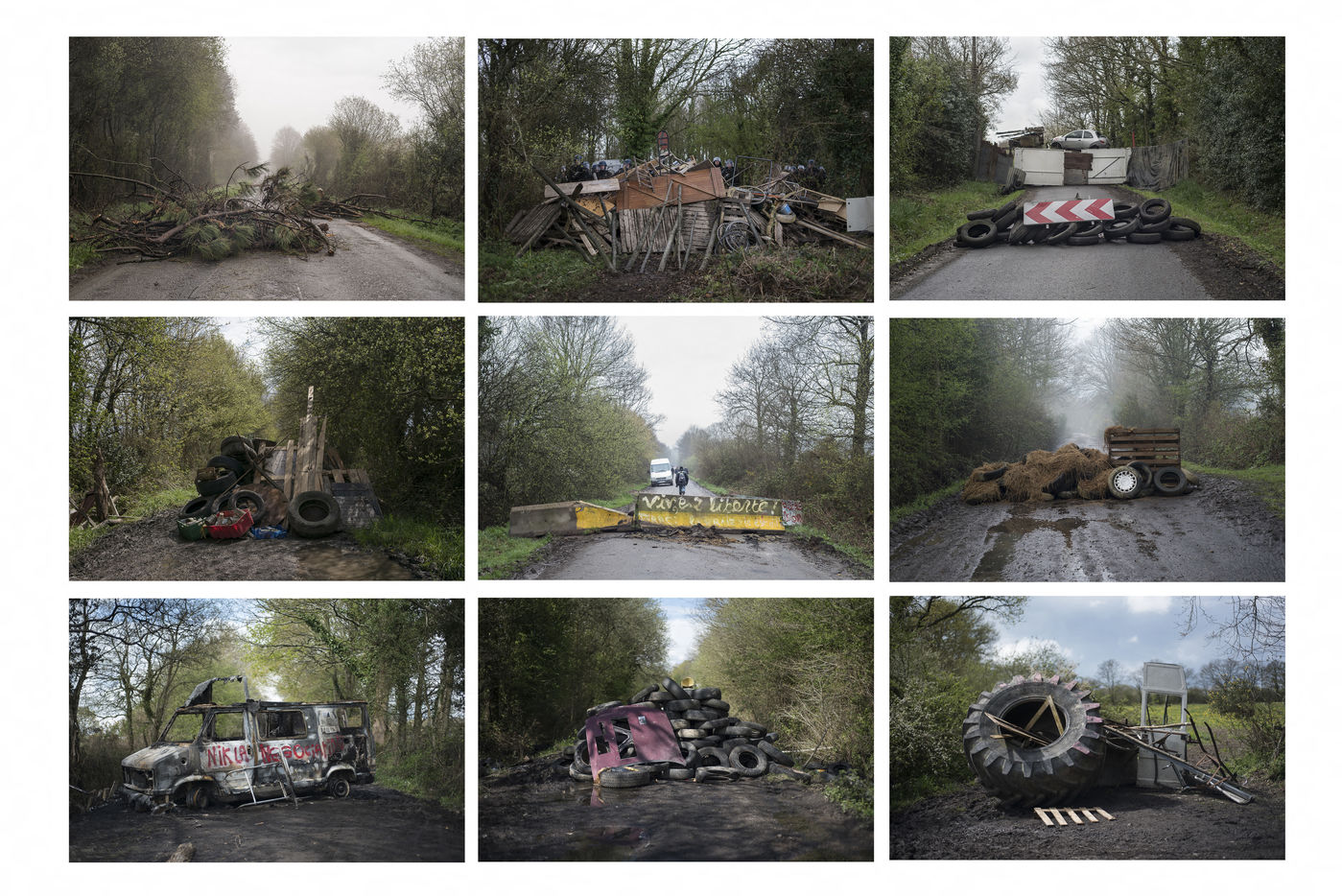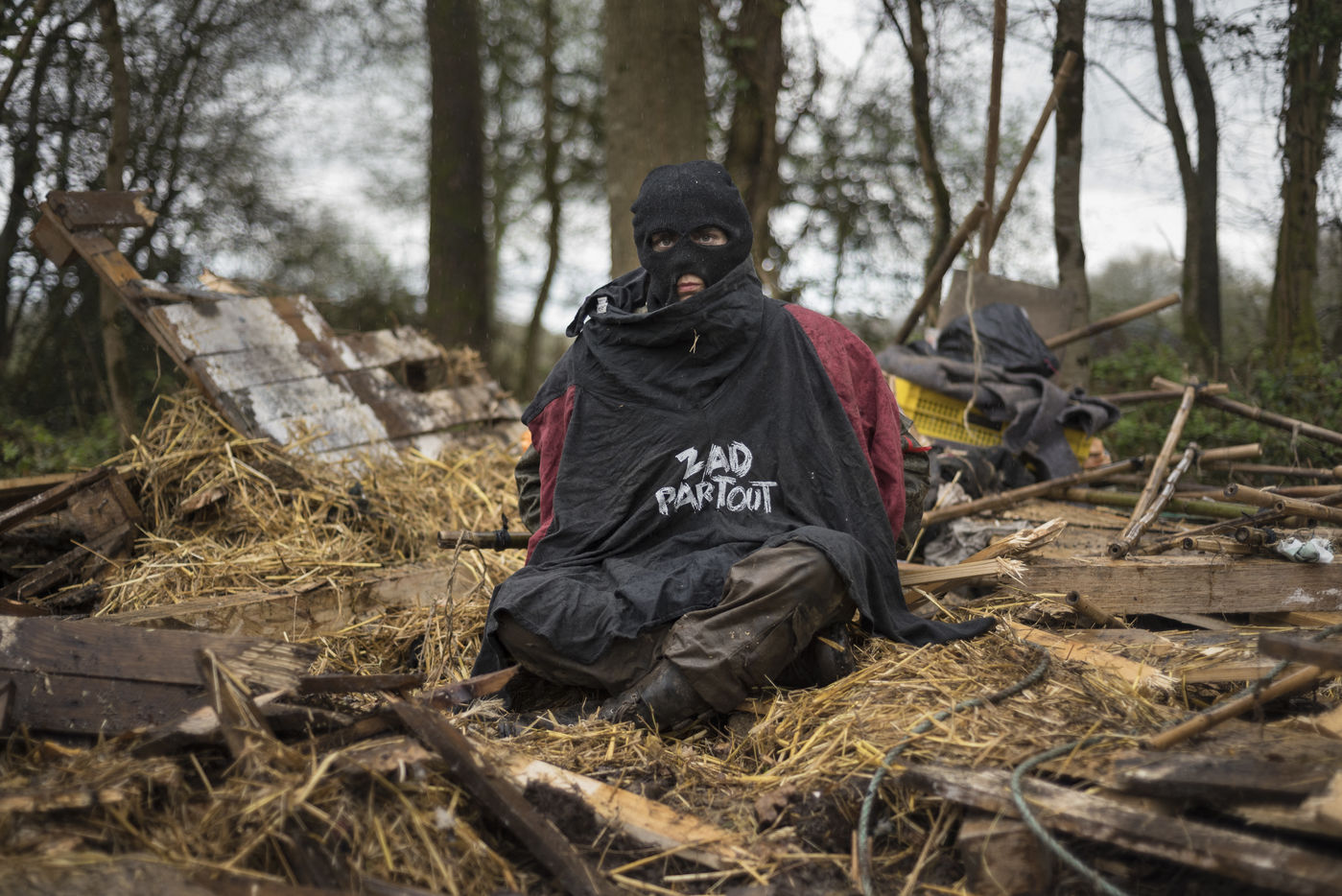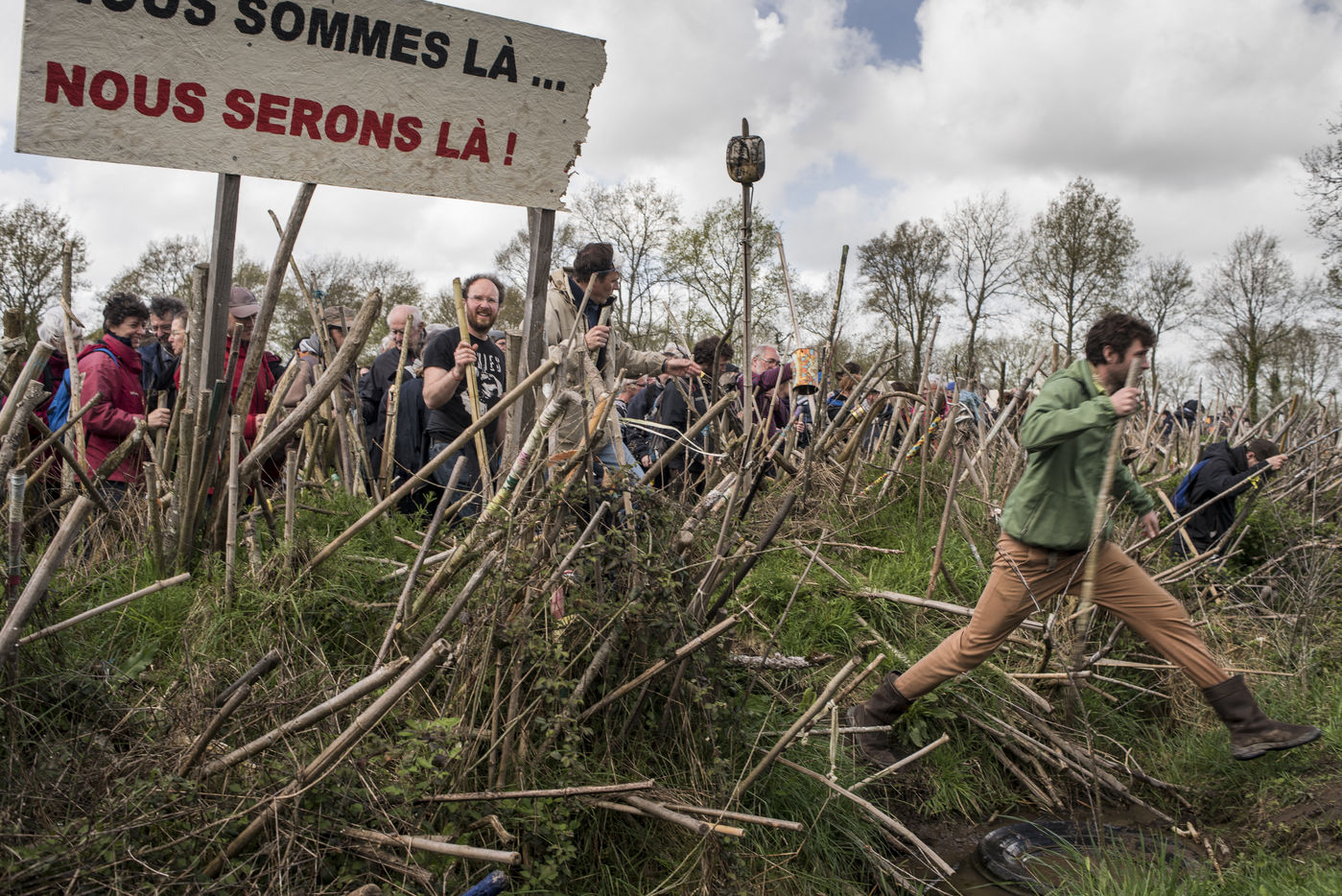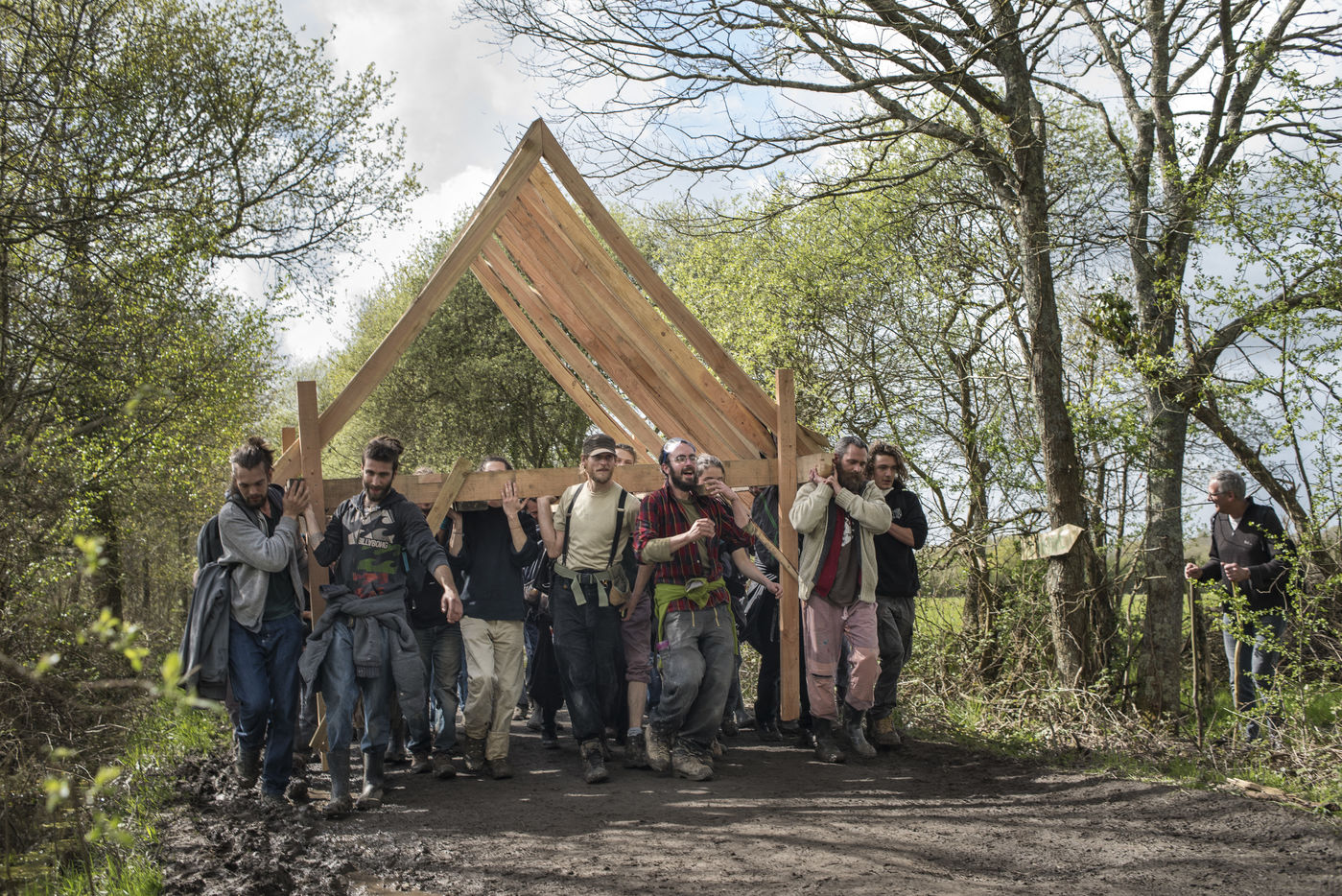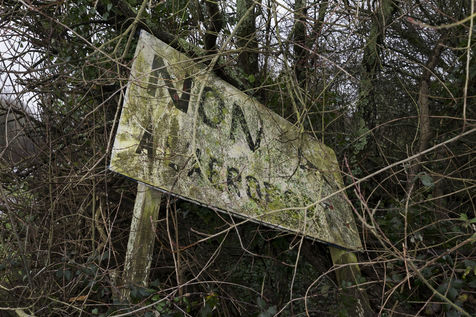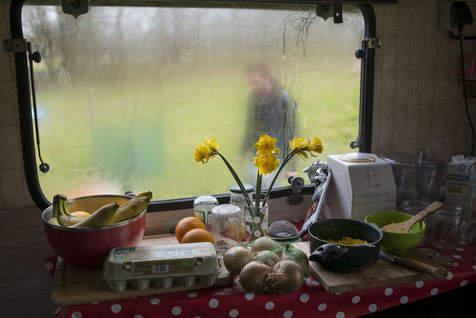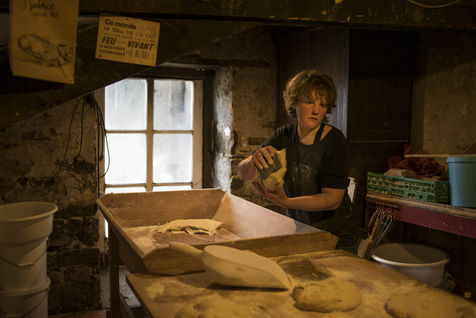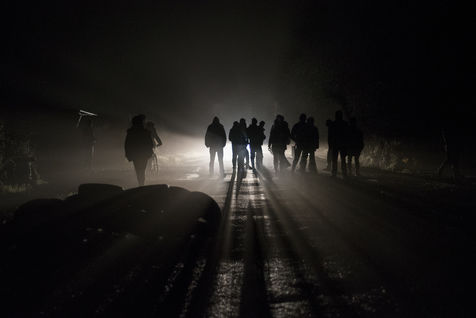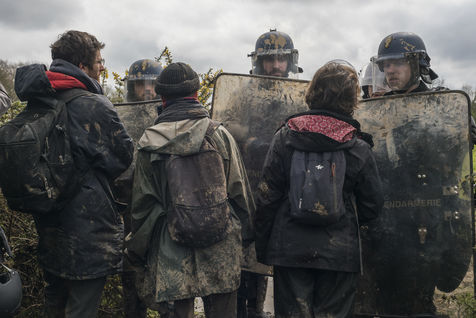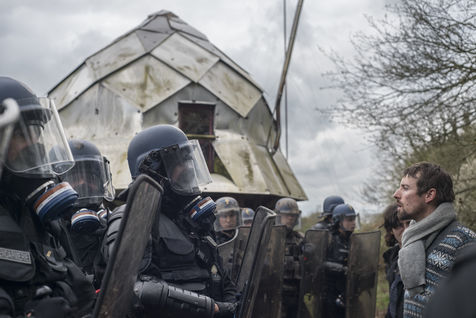Une Zone à Défendre
ZAD en français représente une occupation militante destinée à bloquer physiquement un projet de développement. Appelé officiellement en France, la
Zone d'Aménagement Différé, il a été rebaptisé par les activistes
Zone à Défendre. La ZAD de Notre-Dame-des-Landes, dans le ouest de la France, a été le premier lieu à l'être.
En 2008, après un appel lancé par les agriculteurs et les habitants locaux, fortement opposés à un projet aéroportuaire sur leurs terres depuis les années 60, des activistes se sont rassemblés à NDDL pour squatter la terre dans le but de la défendre "contre l'aéroport et son monde". Au début de 2018, environ 300 activistes ont organisé leur vie horizontalement et collectivement autour de cette manifestation, malgré les marchés et l'État. Profondément intéressé par ce mode de vie - à la fois nouveau et ancien -, je voulais voir à quoi ressemblait cette expérimentation sociale. La première personne qui m'a parlé de la ZAD il y a des années était un ami qui vit dans la zone et organise la désobéissance créative. Il a été mon guide dans ce nouveau monde.
Le 17 janvier 2018, le gouvernement français a officiellement annoncé la fin du projet aéroportuaire. Mais avec cette décision en est venue une autre: le Premier ministre français a également annoncé que la communauté avait jusqu'au printemps pour partir.
Mon voyage a commencé avec les célébrations qui ont suivi l'annonce officielle de l'annulation du projet d'aéroport, le 10 février 2018. À ce stade, la lutte environnementale est finalement gagnée, mais l'avenir de la communauté qui s'est formée autour de la protestation est menacée. Ma documentation est toujours en cours et basée sur mon expérience personnelle, elle ne prétend donc pas représenter la ZAD dans son ensemble.
J'ai eu peu de temps pour prendre contact avec des membres de la communauté et avoir un aperçu de leurs activités quotidiennes avant qu'une opération d'expulsion à grande échelle ne commence le 9 avril 2018, comprenant 2500 gendarmes, voitures blindées, drones et hélicoptères.
Jusqu'à présent, je me suis retrouvée dans un laboratoire d'échange constant de connaissances et de compétences, un lieu de dévouement et d'amitiés radicales. La ZAD est une utopie vivante avec 2 boulangeries, des fermes collectives, un journal, une radio, une bibliothèque, des ateliers et des projets artisanaux. Ce qui me fascine le plus dans cette communauté, c'est que les habitants de la ZAD défendent leurs choix avec toute leur existence.
En ce moment, les expulsions ont cessé et les négociations avec l'État se poursuivent.
A Zone to Defend
ZAD in french stands for an activist occupation intended to physically blockade a development project. Called officially in France, the
Zone d' Aménagement Différé (Zone for Future Development), it was renamed by protesters as the
Zone à Défendre (Zone to Defend). The ZAD of Notre Dame des Landes in south-west France was the first place to be so named.
In 2008, after a call by local farmers and inhabitants who had since the '60s, strongly opposed an airport project on their lands, activists started gathering in NDDL to squat in the land with the aim to defend it "
against the airport and its world". By the beginnings of 2018, approximately 300 activists have organised their lives around this protest, horizontally and collectively, despite the markets and the state. Deeply interested in this way of life - both new and old -, I wanted to see for myself what this social experiment looked like. The first person who talked to me about the ZAD years ago was a friend who lives in the zone and organises creative disobedience. He has been my guide to this new world.
On January 17th, 2018 the french government officially announced the end of the airport project. But with this decision came another: the french prime minister also announced that the community had until spring to leave.
My journey started on February 10th, 2018 with the celebrations that followed the official announcement of the cancellation of the airport project. At this point, the environmental struggle is finally won, but the future of the community that has been formed around the protest is threatened. My documentation is still ongoing and based on my personal experience, therefore it doesn't claim to represent the ZAD as a whole.
I had a short time to get in touch with some members of the community and get a glimpse of their daily activities before a large-scale eviction operation started on April 9th, 2018, comprising 2500 gendarmes, armoured cars, drones and helicopters.
This far, I found myself inside a laboratory of constant exchange of knowledge and skills, a place of dedication and radical friendships. The ZAD is a living utopia with 2 bakeries, collective farms, a newspaper, a radio station, a library, workshops and artisan projects. What fascinates me the most in this community is that the inhabitants of the ZAD defend their choices with their whole existence.
At this moment evictions have halted and negotiations with the state are ongoing.

